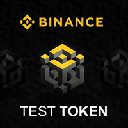-
 Bitcoin
Bitcoin $92,487.5953
-1.17% -
 Ethereum
Ethereum $1,769.5061
-0.61% -
 Tether USDt
Tether USDt $1.0001
0.01% -
 XRP
XRP $2.1661
-3.02% -
 BNB
BNB $605.9058
-1.82% -
 Solana
Solana $148.3950
-1.79% -
 USDC
USDC $1.0000
0.02% -
 Dogecoin
Dogecoin $0.1736
-3.74% -
 Cardano
Cardano $0.6853
-1.18% -
 TRON
TRON $0.2432
-1.66% -
 Sui
Sui $3.0882
6.20% -
 Chainlink
Chainlink $14.4419
-0.81% -
 Avalanche
Avalanche $22.0562
-2.36% -
 UNUS SED LEO
UNUS SED LEO $9.2816
2.29% -
 Stellar
Stellar $0.2634
-1.47% -
 Toncoin
Toncoin $3.1339
0.89% -
 Shiba Inu
Shiba Inu $0.0...01321
-3.16% -
 Hedera
Hedera $0.1785
-3.10% -
 Bitcoin Cash
Bitcoin Cash $360.2626
-0.41% -
 Polkadot
Polkadot $4.0165
-1.10% -
 Litecoin
Litecoin $82.4313
-1.70% -
 Hyperliquid
Hyperliquid $18.1328
-4.03% -
 Dai
Dai $0.9999
-0.01% -
 Bitget Token
Bitget Token $4.5137
-1.88% -
 Ethena USDe
Ethena USDe $0.9994
0.01% -
 Pi
Pi $0.6519
-2.70% -
 Monero
Monero $225.4638
-0.75% -
 Uniswap
Uniswap $5.8201
-1.36% -
 Pepe
Pepe $0.0...08576
-5.30% -
 Aptos
Aptos $5.3090
0.20%
Can OKX leveraged trading be used to play with leverage
Understanding the risks and benefits of OKX's leveraged trading is crucial before engaging in this advanced strategy, which enables traders to amplify their profits but also assumes higher risks.
Nov 22, 2024 at 03:46 am

Can OKX Leveraged Trading Be Used to Play with Leverage?
Navigating OKX Leveraged Trading
Understanding the Basics:
- Leverage refers to borrowing funds from an exchange to enhance your trading position.
- OKX leveraged trading allows you to amplify your profits while assuming higher risk.
- It is crucial to comprehend the intricacies of leveraged trading before engaging in this advanced strategy.
Selecting the Right Leverage:
- OKX offers a range of leverage options, typically ranging from 1:2 to 1:125.
- The appropriate leverage ratio depends on your risk tolerance, trading strategy, and market volatility.
- Opting for higher leverage magnifies both potential gains and losses.
Choosing the Trading Instrument:
- OKX offers leveraged trading for futures contracts, perpetual swaps (inverse and USDT-margined), spot grid trading, and options.
- Each instrument carries varying risk profiles and margin requirements.
- Carefully consider the underlying asset and market conditions before selecting an instrument.
Managing Risk:
- Risk management is paramount in leveraged trading. Utilize stop-loss orders to limit potential losses.
- Monitor your margin level closely to prevent liquidation in case of adverse price movements.
- Avoid overleveraging, as even small market fluctuations can inflict significant losses.
Trading Strategies for Leveraged Trading:
- Scalping: Exploiting small price fluctuations over a short time frame. Requires high leverage and quick execution.
- Day Trading: Trading within a single day, aiming to capture intraday movements. May involve moderate leverage.
- Swing Trading: Holding positions for several days to weeks, targeting larger swings in price. Typically uses lower leverage.
Benefits of OKX Leveraged Trading:
- Amplified Profits: Leverage increases your potential profits by magnifying trading gains.
- Enhanced Returns: Effective leveraged trading can yield higher returns than traditional trading.
- Flexibility: OKX offers a range of leverage options and trading instruments, providing versatility.
Risks of OKX Leveraged Trading:
- Increased Losses: Leverage multiplies not only profits but also losses. Adverse market movements can result in substantial losses.
- Margin Calls and Liquidation: Maintaining a sufficient margin level is essential to avoid margin calls and potential liquidation.
- Emotional Trading: Leverage can intensify emotions and lead to impulsive trading decisions.
Disclaimer:info@kdj.com
The information provided is not trading advice. kdj.com does not assume any responsibility for any investments made based on the information provided in this article. Cryptocurrencies are highly volatile and it is highly recommended that you invest with caution after thorough research!
If you believe that the content used on this website infringes your copyright, please contact us immediately (info@kdj.com) and we will delete it promptly.
- BNB Price Spikes 2.2% on a 98% Leap in Trading Volume as SEC Chairman Paul Atkins Drops a Bombshell
- 2025-04-24 15:15:12
- Remittix (RTX) ignites a PayFi revolution that threatens to topple Ripple (XRP) and create more crypto millionaires than Shiba Inu (SHIB).
- 2025-04-24 15:15:12
- XRP Price Surges 4.46% to $2.24 as Trading Volume Skyrockets 124% to $5.92 Billion
- 2025-04-24 15:10:11
- Major tokens fell as much as 5% on Thursday
- 2025-04-24 15:10:11
- XRP Price Prediction: Is This the Start of Altcoin Season?
- 2025-04-24 15:05:12
- XRP Finally Shows Signs of a Major Breakout
- 2025-04-24 15:05:12
Related knowledge
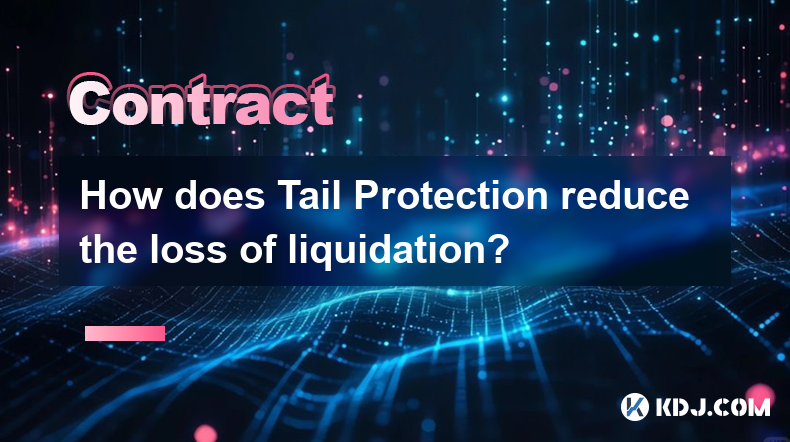
How does Tail Protection reduce the loss of liquidation?
Apr 11,2025 at 01:50am
Introduction to Tail Protection in CryptocurrencyTail Protection is a mechanism designed to mitigate the risks associated with liquidation in cryptocurrency trading. Liquidation occurs when a trader's position is forcibly closed by the exchange due to insufficient margin to cover potential losses. This often happens in leveraged trading, where traders b...
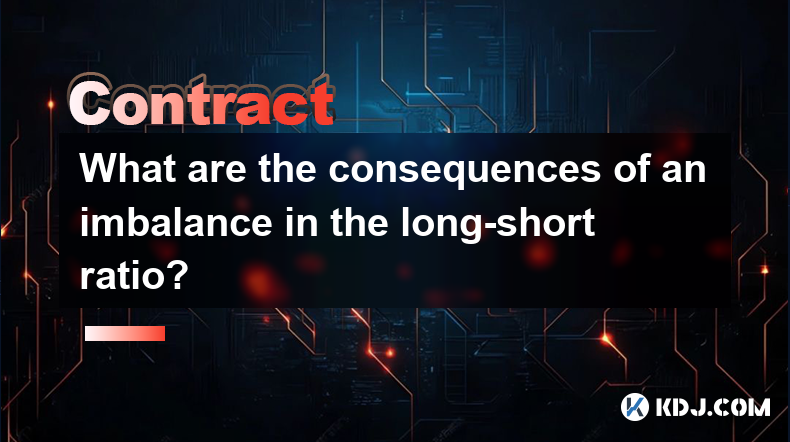
What are the consequences of an imbalance in the long-short ratio?
Apr 13,2025 at 02:50pm
The long-short ratio is a critical metric in the cryptocurrency trading world, reflecting the balance between bullish and bearish sentiments among traders. An imbalance in this ratio can have significant consequences on the market dynamics, affecting everything from price volatility to trading strategies. Understanding these consequences is essential fo...
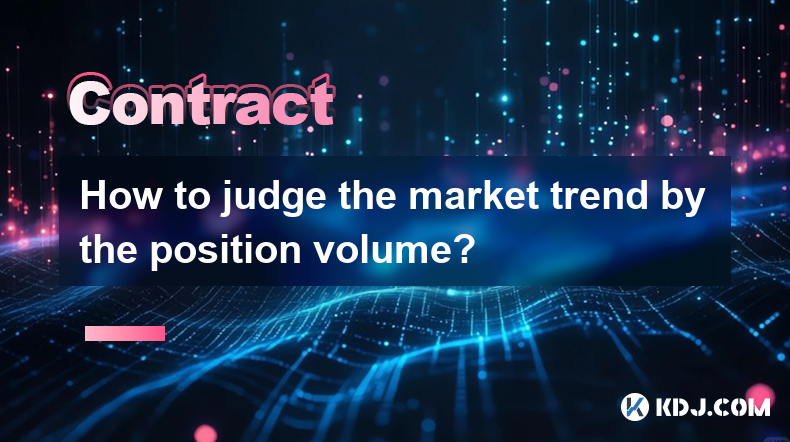
How to judge the market trend by the position volume?
Apr 11,2025 at 02:29pm
Understanding how to judge the market trend by position volume is crucial for any cryptocurrency trader. Position volume, which refers to the total number of open positions in a particular cryptocurrency, can provide valuable insights into market sentiment and potential price movements. By analyzing this data, traders can make more informed decisions ab...

Why does a perpetual contract have no expiration date?
Apr 09,2025 at 08:43pm
Perpetual contracts, also known as perpetual futures or perpetual swaps, are a type of derivative product that has gained significant popularity in the cryptocurrency market. Unlike traditional futures contracts, which have a fixed expiration date, perpetual contracts do not expire. This unique feature raises the question: why does a perpetual contract ...
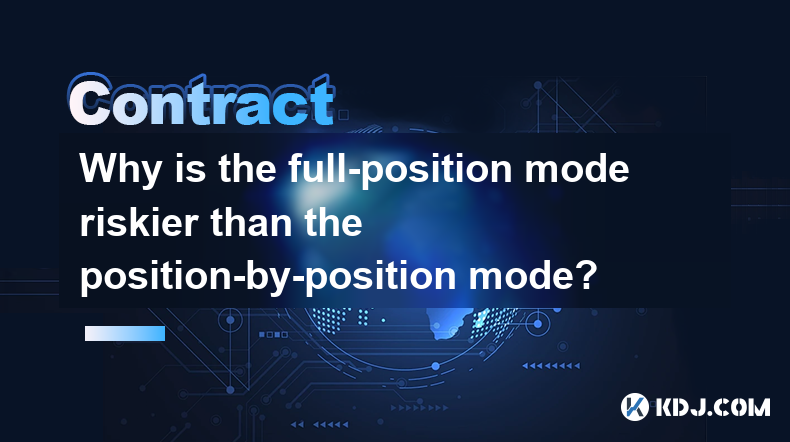
Why is the full-position mode riskier than the position-by-position mode?
Apr 13,2025 at 03:42pm
Why is the Full-Position Mode Riskier Than the Position-by-Position Mode? In the world of cryptocurrency trading, the choice between full-position mode and position-by-position mode can significantly impact the risk profile of a trader's portfolio. Understanding the differences between these two modes is crucial for making informed trading decisions. Th...
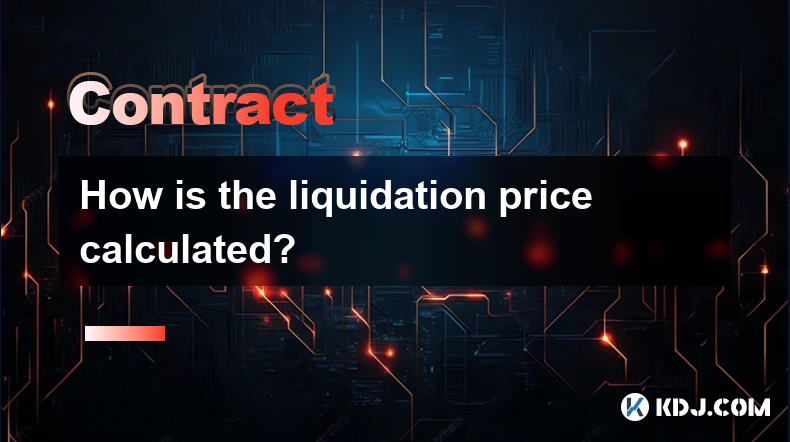
How is the liquidation price calculated?
Apr 12,2025 at 01:35am
Introduction to Liquidation PriceLiquidation price is a critical concept in the world of cryptocurrency trading, particularly when dealing with leveraged positions. Understanding how this price is calculated is essential for traders to manage their risk effectively. The liquidation price is the point at which a trader's position is forcibly closed by th...

How does Tail Protection reduce the loss of liquidation?
Apr 11,2025 at 01:50am
Introduction to Tail Protection in CryptocurrencyTail Protection is a mechanism designed to mitigate the risks associated with liquidation in cryptocurrency trading. Liquidation occurs when a trader's position is forcibly closed by the exchange due to insufficient margin to cover potential losses. This often happens in leveraged trading, where traders b...

What are the consequences of an imbalance in the long-short ratio?
Apr 13,2025 at 02:50pm
The long-short ratio is a critical metric in the cryptocurrency trading world, reflecting the balance between bullish and bearish sentiments among traders. An imbalance in this ratio can have significant consequences on the market dynamics, affecting everything from price volatility to trading strategies. Understanding these consequences is essential fo...

How to judge the market trend by the position volume?
Apr 11,2025 at 02:29pm
Understanding how to judge the market trend by position volume is crucial for any cryptocurrency trader. Position volume, which refers to the total number of open positions in a particular cryptocurrency, can provide valuable insights into market sentiment and potential price movements. By analyzing this data, traders can make more informed decisions ab...

Why does a perpetual contract have no expiration date?
Apr 09,2025 at 08:43pm
Perpetual contracts, also known as perpetual futures or perpetual swaps, are a type of derivative product that has gained significant popularity in the cryptocurrency market. Unlike traditional futures contracts, which have a fixed expiration date, perpetual contracts do not expire. This unique feature raises the question: why does a perpetual contract ...

Why is the full-position mode riskier than the position-by-position mode?
Apr 13,2025 at 03:42pm
Why is the Full-Position Mode Riskier Than the Position-by-Position Mode? In the world of cryptocurrency trading, the choice between full-position mode and position-by-position mode can significantly impact the risk profile of a trader's portfolio. Understanding the differences between these two modes is crucial for making informed trading decisions. Th...

How is the liquidation price calculated?
Apr 12,2025 at 01:35am
Introduction to Liquidation PriceLiquidation price is a critical concept in the world of cryptocurrency trading, particularly when dealing with leveraged positions. Understanding how this price is calculated is essential for traders to manage their risk effectively. The liquidation price is the point at which a trader's position is forcibly closed by th...
See all articles



















































































